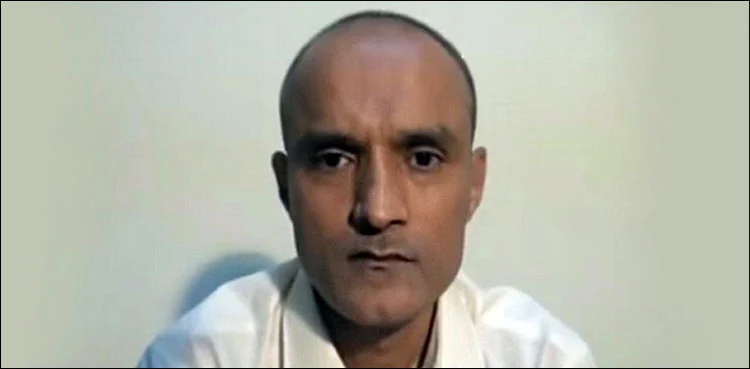In a recent hearing regarding the appeal against the decision to try civilians in military courts, Supreme Court Justice Muhammad Ali Mazhar raised concerns about the potential for cases like that of Indian spy Kulbhushan Jadhav to be tried in military courts following the court’s ruling.
Justice Mazhar questioned whether, after the Supreme Court’s ruling to annul Clause 2D of the Army Act, cases involving national security threats like Kulbhushan’s could still be tried in military courts. He asked, “Can a case like Kulbhushan Jadhav’s be tried in a military court now?”
Responding to the query, lawyer Khawaja Haris clarified that the Supreme Court’s decision means even cases involving foreign spies like Kulbhushan will not be tried in military courts.
The hearing also delved into the broader issue of military versus anti-terrorism court (ATC) jurisdiction. Justice Hassan Azher Rizvi raised a question regarding previous terrorist attacks on facilities such as the GHQ and Karachi base, asking, “Where were these cases tried? If an army chief’s plane hijacking case was tried in a civilian court, what makes the 9th May cases different that they are being handled in military courts? Is the 9th May incident a more serious crime than terrorism, warranting trial in a military court?”
Justice Jamal Khan Mandokhail also questioned the disparities in sentencing, pointing out that while some individuals were acquitted in ATCs, others were sentenced by military courts. He asked whether military courts require special evidence that civilian courts do not, and why anti-terrorism courts were not strengthened to handle such cases.
Justice Naeem Akhtar Afghan further added, “Out of 103 individuals involved in the 9th May incidents, their cases were tried in military courts, while the others are being handled by ATCs. How was this distinction made, and what criteria decide which cases go to military courts?”
Justice Afghan also demanded to see the detailed ruling from the ATCs regarding the transfer of suspects into military custody.
The hearing raised significant questions regarding the application of military and civilian judicial processes and the ongoing debate about how cases related to national security should be handled under Pakistani law.







